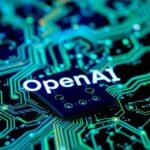
Stellantis Data Breach: Customer Info Compromised
Stellantis Confirms Customer Data Stolen in Breach Automaker giant Stellantis recently announced a data breach impacting some of its customers. The company is currently investigating...


Stellantis Confirms Customer Data Stolen in Breach Automaker giant Stellantis recently announced a data breach impacting some of its customers. The company is currently investigating...

Google’s Gemini AI Expands to Your TV Get ready for a smarter TV experience! Google is bringing its powerful Gemini AI model to Google TV...

Nvidia Eyes Potential $100 Billion Investment in OpenAI Nvidia is set to invest up to $100 billion in OpenAI in a strategic partnership focused on...

The AI Boom Fueling Growth with Billion-Dollar Infrastructure Deals The artificial intelligence revolution is here and it’s hungry. AI’s insatiable appetite for computing power drives...

Oura Ring Secures $875M, Valuation Hits $11B Oura, the company renowned for its advanced health-tracking ring, has reportedly secured $875 million in a Series E...

Oracle’s New Leadership: Two Presidents Share CEO Role Oracle Corporation recently announced a significant shift in its leadership structure. The company promoted two presidents to...

Blue Origin Secures NASA Deal for VIPER Moon Mission Blue Origin, the aerospace company founded by Jeff Bezos has won a significant contract from NASA...